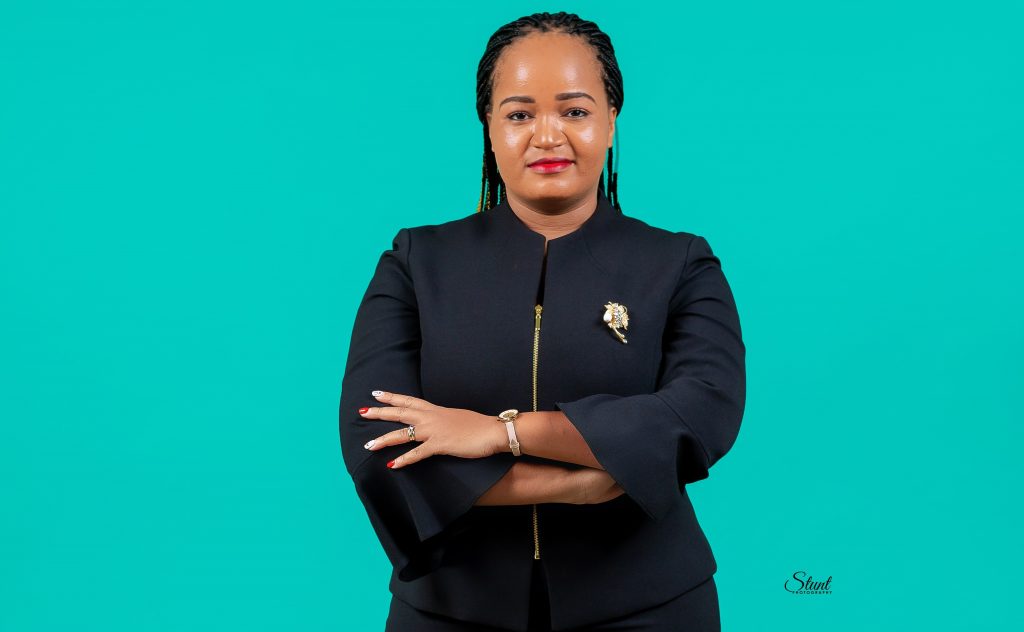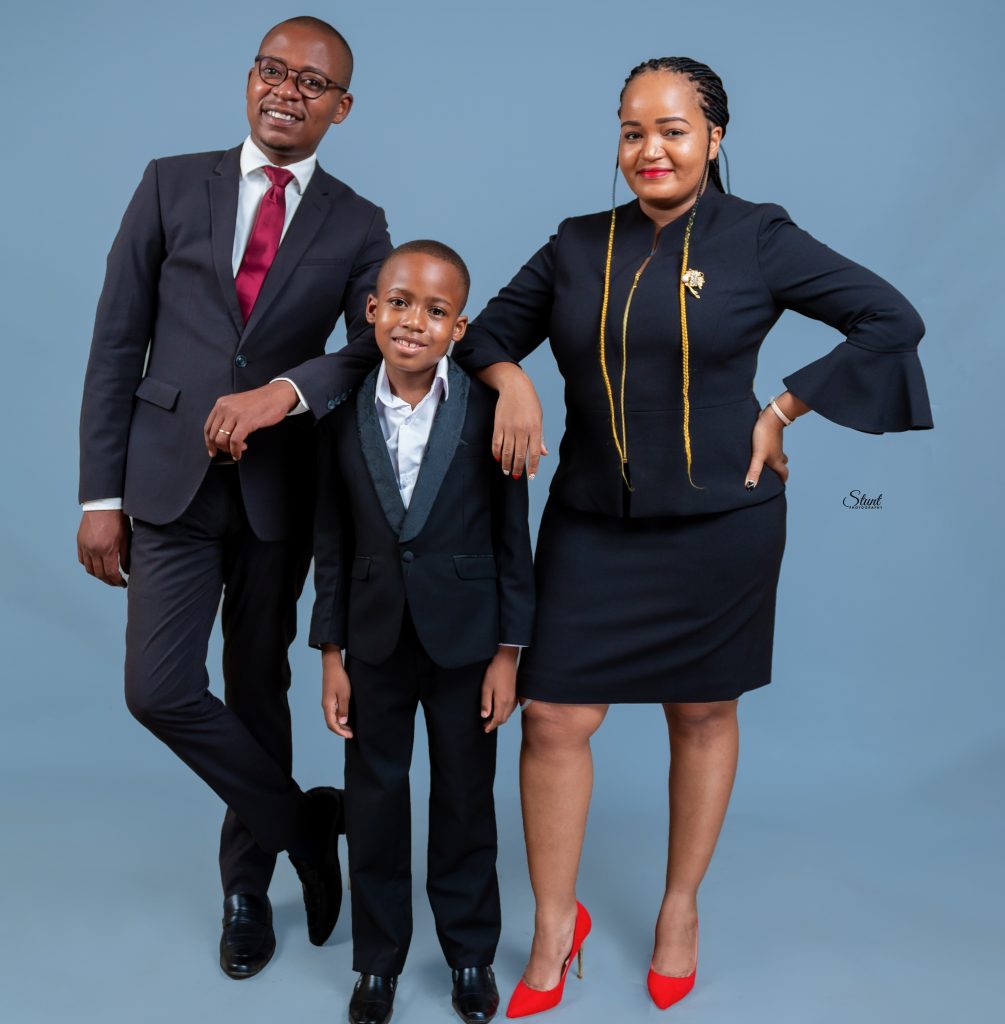Thandizo Kamowa Mungwira: Gender Equality adviser
While some women are busy pulling each other down, others are, by nature, endowed with the passion to improve the welfare of fellow women and girls. Thandizo Kamowa Mungwira is one of such women who is dedicated to ‘women empowerment.’ OUR CONTRIBUTOR MIKE VAN KAMANDE caught up with this exceptional young woman. Excerpts:

Tell us more about yourself
I was born here in Malawi, to be precise, at Kamuzu Central Hospital in Lilongwe district. I grew up in Zomba District and later on moved to Lilongwe. I had a modest upbringing in a great family with strong Roman Catholic values.
My father was a teacher who knew the benefits of education and there was no excuse or reason for skipping a class during my early school years.
My mother was an administrative assistant with the office of the University of Malawi who wanted to witness her daughter walk through the corridors of the university. They both worked very hard to fend and support the family.
What’s your education background?
I am a holder of a Master of Arts in Development Studies degree and a Bachelor of Social Science degree, both obtained from the University of Malawi, Chancellor College.
I attended primary education at Zomba CCAP Primary School and secondary at Domasi Mission Secondary School at Songani in Zomba.

I then proceeded to read for my bachelor’s degree and I graduated in 2010.
After a few years of work, I went to read for my masters and graduated in 2017.
What is it that you are doing to improve the welfare of women and girls?
I participated in a team that drafted the 2015 Convention on the Elimination of All Forms of Discrimination Against Women (Cedaw) shadow report for Malawi. Malawi ratified the UN Cedaw in 1987 and has a legal obligation to submit a report every four years on measures taken to implement the Convention. I was also part of an action research team tackling gender-based violence (GBV) at Chancellor College. Furthermore, I was part of a team that kick-started Her Future Her Choice project at Oxfam, a project promoting sexual reproductive health and rights (SRHR) in Balaka and Lilongwe targeting 19600 adolescent girls and young women.
Currently, I am coordinating the Spotlight project in Machinga and implementation of Sasa! Faith methodology in five districts with partners. Sasa! a Kiswahili word that means now, is uniquely designed to address a core driver of violence against women and HIV: the imbalance of power between women and men, girls and boys. It is documented in a comprehensive and easy-to-use Activist Kit, it also inspires and enables communities to rethink and reshape social norms.
What were your aspirations?
Growing up, I had so many careers that I wanted to pursue, from lawyer to secretary and pilot. All quite different I know but then I grew an interest in social and development work when I visited my aunt Dr. Virginia Kamowa who was then at Chancellor College doing social science.
When she explained to me what social science was all about, I immediately knew I was meant to take this career path because I wanted to speak for my fellow children. During my childhood days, when you boarded a public transport, as a child you were made to sit on someone else’s lap or on some hot space at the front (behind the driver’s seat). That used to irritate me and that’s when the advocate in me was tickled.
Give a breakdown of your career path
I started off my career life working at the call centre, an experience I value till this day because it taught me patience and phone etiquette. I was then recruited as a programme coordinator at Yamba Malawi (previously known as Goods for Good), an organisation assisting orphans and vulnerable children in Malawi, a position I enjoyed because I felt that the child rights advocate that I had always aspired was coming to life. After over three years of service, I left my job to further pursue my studies.
During my studies, we were taught of all sorts of development patterns and plans that can move Malawi from poverty to prosperity. However, gender and development course enlightened me that despite having all the great plans, development cannot be achieved if a part, or I should say more than half of the population, being women and girls, are left behind. That’s when I grew a passion for gender with particular focus on women and girls rights.
I have worked with Women and Law Society in Africa (WLSA-Malawi), Malawi Government under the Ministry of Economic Planning and Development, ActionAid Malawi and Oxfam in Malawi. I am currently the gender equality adviser with Trócaire Malawi. I am very happy with the growth I have gained within a couple of years!
What does your current job involve?
Well it involves driving a programme aimed at women empowerment through elimination of gender-based violence from the community to district levels while also advocating for similar issues at national level.
I support other programmes and projects to mainstream and integrate women empowerment in their everyday work because the organisation believes in putting women at the centre of its programming and interventions. Trócaire is an organisation that envisages a just and peaceful world where love conquers fear. This may only be realised when women and girls are able to enjoy and exercise their full and potential rights.
What are the challenges you face in your career?
The main challenge I have experienced this far is striking the work-life balance. Sometimes the demands of the job can be overwhelming that you tend to forget to enjoy your life along the process. But practicing self-care is one of my resolutions this year and I aim to be achieving that one day at a time.
When you look at yourself in 2021, what do you see?
I see myself as a lady who would like to learn as much as possible on new and emerging trends in gender and development work so as to better serve the people (especially women and girls) and the communities that I work with. I would like to see the human and financial capital that is invested in the communities bring positive change in the lives of the women and girls in Malawi. And perhaps a PhD in the near future!
When do you hope things will change for the better in this world?
Change starts today, change starts now and most importantly change begins with each one of us. I believe we all have the power and potential to be change agents from wherever we are. Simple small steps towards positive self, consideration for others and the society we live in will all yield great and positive results.
If you could make a change in your current environment, what would that be?
I would wish to have; time- because sometimes I get so engulfed into my work that eight hours of work in a day is not enough; strength- the fight for gender equality and women’s empowerment can be challenging, personally draining and professionally infuriating when institutions responsible for provision of basic services are not living up to their expectations. I wish for more resources especially financial so that great models and interventions can be able to reach far and wide!
What would you consider as milestones in your life?
Being a mother is one of the greatest milestones in my life. It taught me love beyond my imagination. Being a gender activist has also given me the opportunity to be compassionate and practise care for yourself and others.
What advice do you have for young women out there?
They should work and pray hard. They should dream big. They should never give up on themselves. They should believe that education is the key to opening many doors of success. They should resist any temptations, reject any ill intentions and report any malpractices! n





